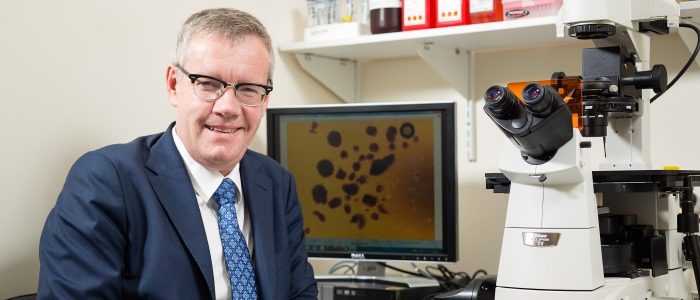News
3D printing bone tissue
Jun 28 2022
A new treatment is on the horizon for the 140,000 diabetics in Australia who rely on insulin for survival. The ARC Centre of Excellence for Electromaterials Science (ACES) is developing a 3D printer that can print insulin-producing islet cells for transplant.

Collaborator, and renowned transplant physician Prof. Toby Coates from the University of Adelaide, said it’s a new take on an existing treatment which is available for patients with severe type-one diabetes.
“We are already treating patients with severe or unstable diabetes by transplanting donor islet cells which can restore their capacity to produce insulin and regulate blood sugar levels,” Prof Coates said.
The success of this treatment relies on the availability of donor islet cells, as well as the patient’s immune response to the new cells.
“Our goal is to use the patient’s own cells to grow the islet cells they need to produce insulin, solving the problem of donor rejection and the need for additional medication which has side effects,” he said.
The first step for the team has been to work with donor islet cells.
“Already, we have printed an ink which contains donor islet cells around nanoparticles which contain immuno-suppressant drugs,” Prof. Coates said.
“This is an exciting development as it demonstrates we can put all the required cells next to each other in the right order, and combine it with factors to improve the immune response.
“In the first instance this may be a way to use donor islet cells more effectively,” he said.
While islet transplantation is currently available to diabetics with a condition which prevents them from feeling an oncoming hypo, the new approach could open it up to more patients.
“If we are able to come up with ways to enhance the effectiveness of the treatment, especially using the patient’s own cells, it could be a cure for all patients with type-one diabetes,” he said.
ACES Director Prof. Gordon Wallace said this type of project is a priority for his team and partner, the Australian National Fabrication Facility (ANFF), as it is accelerating bench to bedside research.
“The end game here is for the ACES-ANFF partnership to deliver printing hardware and protocols into Prof. Coates’ lab so that a clinical outcome can be fast tracked,” he said.
Learn more about Prof. Coates’ research at the Bill Wheeler Symposium
Professor Coates is the keynote speaker at the Bill Wheeler Symposium, 5pm Friday 11 November at the University of Wollongong’s Innovation Campus.
The event celebrates the late Mr Wheeler’s contribution to bionics research and rewards an exceptional student with a $2000 travel prize from the Rotary Club of Kiama and friends.
The event is free, and open to the public.
Registrations close Wednesday 9 November.













